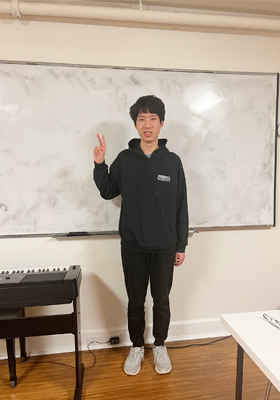Graciela Z.'25 and Peter W.'25 Receive Prestigious History Award


Graciela Z. and Peter W., both juniors at PRISMS, have each received a Global Shortlist Award in the History category of the prestigious John Locke Essay Competition, a rigorous and selective writing competition in the social sciences and humanities. With all student entries judged by a panel of senior academics drawn from leading universities, including Oxford and Princeton, the competition invites students to research various challenging and fascinating topics outside the required curriculum.
Guided by Dr. Hochstetler of the History department, Graciela’s essay, “Which Has a Bigger Effect on History: the Plans of the Powerful or Their Mistakes?” explores the role of unintended consequences of the powerful have much limited effect as compared to that of the mistakes, using four case studies to illustrate the mechanism whereby unintended effects have on the result in turning a plan into an executed folly of mistakes. To support her thesis, Graciela looked at a variety of examples, spanning from Liz Truss’ mini-budget plan to American Prohibition. In writing the essay, Graciela recalls, “I used all the critical–thinking and writing skills I learned from my experience in PRISMS’ unique humanities courses.”
Peter’s essay dove into the fairness of elections, more specifically on the disparity between the resulting seat share and vote share of different parties participating in democratic elections. Using cases from nations that use a FPTP (First-Past-The-Post) majority or “complete FPTP” such as the United Kingdom, Japan, or Taiwan where elections take place in dozens or hundreds of small electoral districts and the winner needs only a plurality of the vote to win a seat, Peter analyzed the vast disparity between vote share and seat share each party gets under this system. In Peter’s view, the unfairness of such a system stems from its “winner-take-all” quality, favoring larger or regional parties while undermining representation of minor parties. Peter also looked into extreme cases in nations employing a proportional representation system with high electoral threshold and small electoral districts, such as in the 2002 Turkish general election, 46% of the votes cast were left unrepresented in parliament, with the winning party, the AKP (Justice and Development Party) winning a staggering 66% of the seats with 34% of the vote. Overall, Peter came to the conclusion that even in fairly administered elections, electoral results can be skewed heavily towards large parties while silencing representation of minorities.